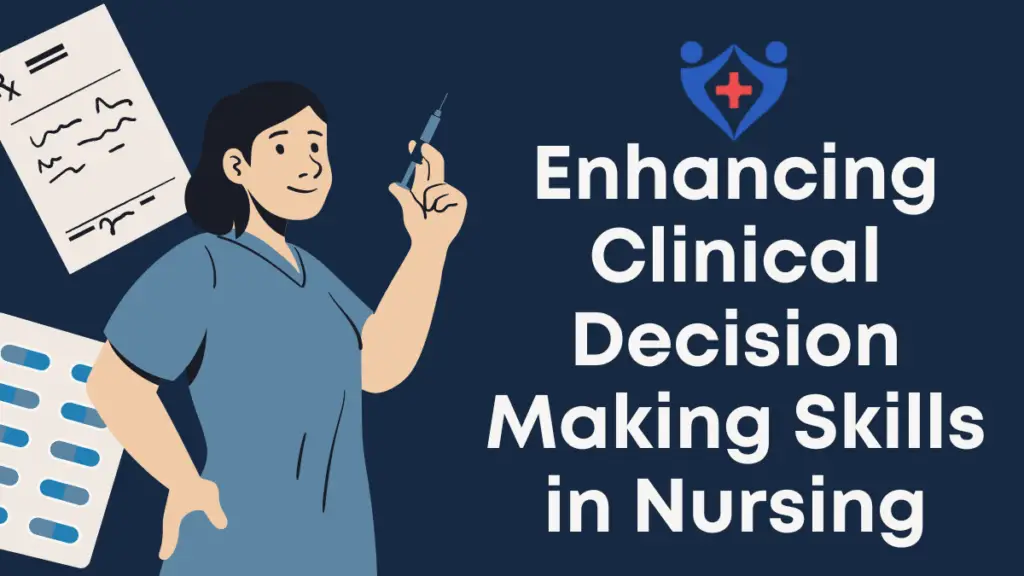In the fast-paced and dynamic environment of healthcare, nurses play a critical role in patient care, often making crucial decisions that directly impact outcomes. Enhancing clinical decision-making skills is therefore imperative for nurses to ensure optimal patient care and safety. This comprehensive guide delves into strategies and techniques to bolster these essential skills, empowering nurses to navigate complex clinical scenarios with confidence and competence.
Understanding Clinical Decision-Making
Clinical decision-making in nursing involves a multifaceted process that integrates evidence-based practice, critical thinking, and professional judgment to deliver high-quality patient care. It encompasses assessing patient needs, analyzing data, formulating diagnoses, implementing interventions, and evaluating outcomes. Effective decision-making relies on a combination of clinical knowledge, experience, intuition, and the ability to adapt to varying situations.
Table: Case Study – Application of Clinical Decision-Making Skills
| Patient Presentation | Clinical Assessment | Diagnostic Findings | Interventions | Outcome Evaluation |
|---|---|---|---|---|
| Elderly patient with chest pain and shortness of breath | Assessment of vital signs, medical history, and presenting symptoms | ECG showing ST-segment elevation indicative of myocardial infarction | Administer oxygen, aspirin, nitroglycerin, and initiate cardiac monitoring | Resolution of chest pain, improvement in ECG findings, and stable vital signs |
Key Components of Clinical Decision-Making Skills
- Critical Thinking Skills
Critical thinking forms the foundation of sound clinical decision-making. Nurses must analyze information objectively, identify patterns, and evaluate evidence to make informed decisions. Key aspects of critical thinking include:
- Problem-solving: Identifying issues, generating solutions, and implementing effective interventions.
- Clinical reasoning: Drawing logical conclusions based on available evidence and patient data.
- Judgment: Making decisions while considering ethical, legal, and professional implications.
- Evidence-Based Practice (EBP)
EBP integrates the best available evidence with clinical expertise and patient preferences to guide decision-making. Nurses must stay abreast of current research findings, guidelines, and protocols to deliver evidence-based care. Steps in EBP include:
- Formulating clinical questions
- Searching for relevant evidence
- Appraising evidence for validity and applicability
- Integrating evidence with clinical expertise
- Evaluating outcomes and adjusting practices accordingly
- Communication and Collaboration
Effective communication is essential for interdisciplinary collaboration and shared decision-making. Nurses must communicate clearly with patients, families, and healthcare team members to ensure coordinated care delivery. Key communication skills include:
- Active listening
- Empathy and compassion
- Clarity and conciseness
- Assertiveness and advocacy
- Emotional Intelligence
Emotional intelligence encompasses self-awareness, self-regulation, empathy, and social skills. Nurses with high emotional intelligence can navigate challenging situations, manage stress, and build rapport with patients and colleagues. Strategies to enhance emotional intelligence include:
- Reflective practice
- Mindfulness and stress management techniques
- Conflict resolution skills
- Building supportive relationships
Enhancing Clinical Decision-Making Skills: Practical Strategies
- Continuing Education and Professional Development
- Pursue advanced certifications and specialized training in areas relevant to clinical practice.
- Attend conferences, workshops, and seminars to stay updated on emerging trends and best practices.
- Participate in online courses and webinars offered by reputable organizations and institutions.
- Simulation and Case-Based Learning
- Engage in simulation exercises and case studies to simulate real-world clinical scenarios.
- Participate in role-playing activities to practice decision-making skills in a controlled environment.
- Reflect on experiences and seek feedback from peers and mentors to identify areas for improvement.
- Mentorship and Preceptorship
- Seek opportunities to work with experienced nurses as mentors or preceptors.
- Learn from their clinical expertise, decision-making processes, and problem-solving strategies.
- Establish a mentorship relationship to receive guidance, support, and constructive feedback.
- Utilization of Decision Support Tools
- Use clinical decision support systems (CDSS) and electronic health records (EHRs) to access evidence-based guidelines, protocols, and decision-making algorithms.
- Leverage technology to streamline data analysis, risk assessment, and decision-making processes.
- Ensure proficiency in using decision support tools effectively and efficiently.
Conclusion
Enhancing clinical decision-making skills is an ongoing process that requires dedication, continuous learning, and practical application. By cultivating critical thinking, embracing evidence-based practice, honing communication skills, and nurturing emotional intelligence, nurses can elevate their ability to make sound clinical judgments and deliver safe, effective, and patient-centered care. Through a commitment to professional development and a collaborative approach to decision-making, nurses can navigate the complexities of healthcare with confidence and competence

